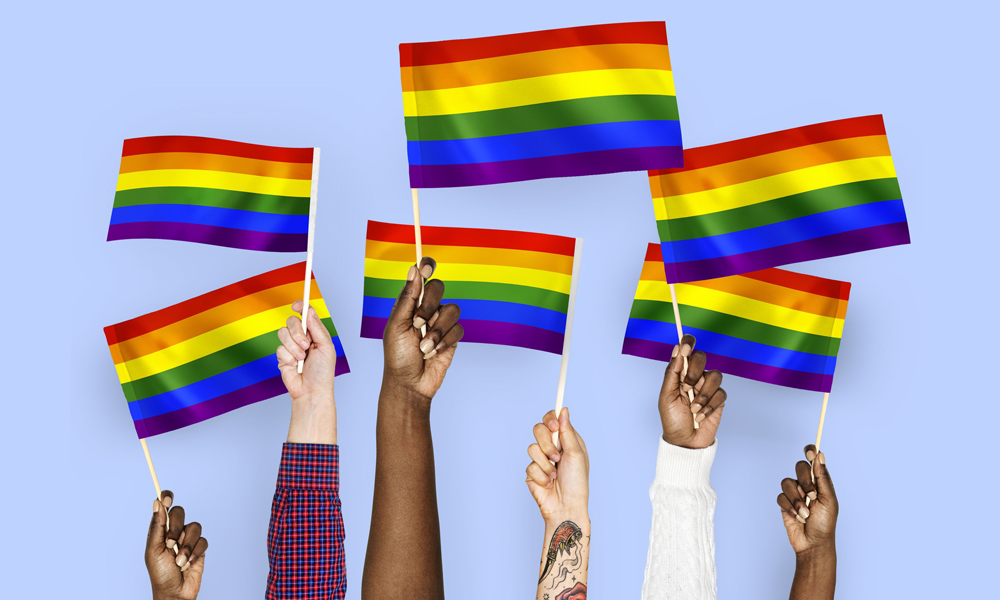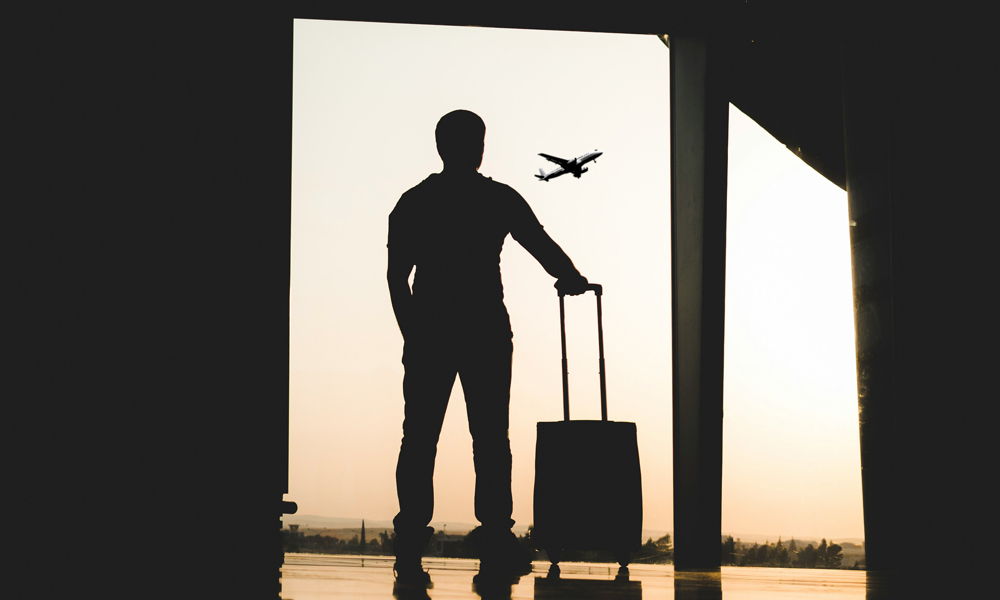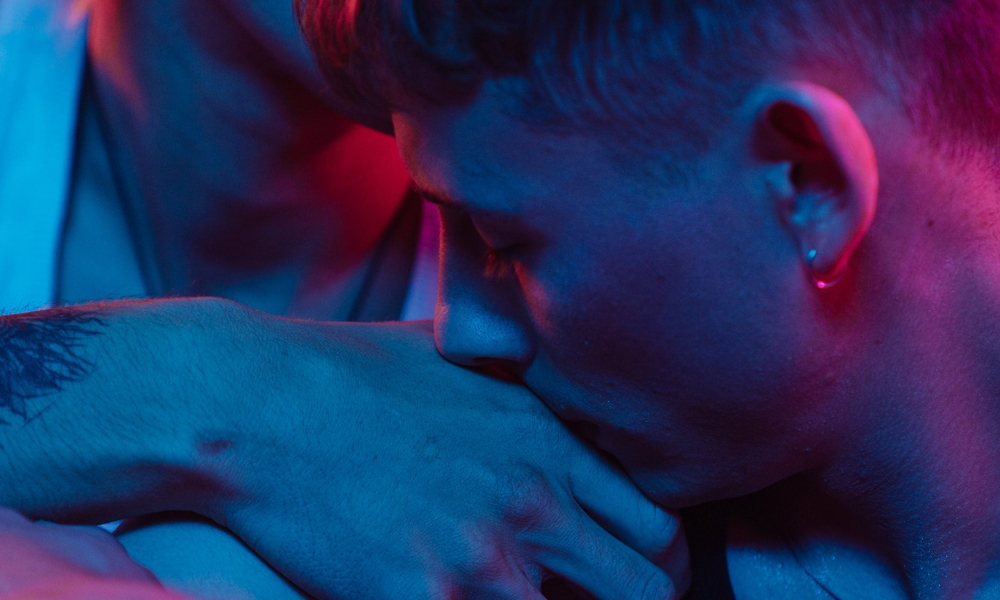I don’t understand how part of gay culture became being mean, rather than being supportive of one another…
By Jaime Woo
One of the highlights from the summer for me was getting to see rock climbing debut at the Olympics. I was so excited for the countless children and adults who were going to fall in love with the sport.
At the same time, I felt a mild sense of dread: like many physical activities, rock climbing can be dangerous when done incorrectly. I saw two instances recently where parents leapt from eight feet off the ground – and nearly flattened their children because they didn’t notice the kids standing below. Most of these parents don’t know enough about rock climbing to even prevent injury to themselves, let alone their young children.
I was lucky to have a group of friends support me when I started rock climbing. They taught me the etiquette expected in climbing gyms, and tips and tricks to reduce the likelihood of getting hurt. And that made me think about how we build communities in general, and the ways we can (and cannot) make them safer.
Looking at the 2SLGBTQ+ community, when I came out, I thought the very act of coming out made me part of this community. Certainly I felt more kinship with others in the community, and recognized a part of myself in them. The same goes within the broader community: we have subcultures where specific rules and customs apply. But as I get older, the more I rethink my assumption of automatic community membership, in the same way that you can become a climber without automatically becoming part of the climbing community.
I saw this in the treatment of Victoria Scone as the first cis woman to be cast on Drag Race UK (and, in fact, the first on all the Drag Race franchises). Some Drag Race fans (and here’s where I separate them from the community) were loudly upset because Victoria didn’t fit their concept of drag. It got to the point where Lawrence Chaney, winner of Drag Race UK Season 2, felt the need to publicly defend Victoria Scone’s casting on Twitter.
For so many of us in the queer community, this was an odd reaction: if you’re an actual fan of drag, you’ve probably encountered so many wonderful performers from all kinds of backgrounds. Rather than being upset, it should have been a relief since Drag Race has so far showcased such a fraction of the talent found in drag performance.
Without guidance on how a community has held together for as long as it has, you can pick up maladaptive, unsupportive practices. In climbing, I’ve seen decently skilled climbers drop off the wall landing on their feet rather than tucking backwards in a roll. Sure, tucking into a roll may look sillier, and therefore more vulnerable, but it’s done because it relieves the pressure on your ankles. I worried that these climbers might at some point land just a bit wrong and end up breaking bones that would leave them unable to climb for months – all to act tough.
How we posture reminds me of an incident that happened at the tail end of 2021. Someone posted a video on Twitter of himself eating pizza at a club, and when another patron tried to get by, the pizza-eater snarled, apparently miffed at being minorly inconvenienced. It’s unclear if it was done in tongue-in-cheek (who was filming this, and why?), but it struck a nerve with Gay Twitter, a small, albeit vocal community. Here was a young, muscular, conventionally attractive white man acting unpleasantly for no other reason than that people who look like him are allowed to do so. And then sharing it online, ready for all the attention it would net.
Some people clapped back, but a lot more happily accepted the opportunity to thirst over the poster. Why, I can’t say. I mean, there are thousands – tens of thousands – of men who look like him, and yet there seems to be room for all of them.
I don’t understand how part of gay culture became being mean. A decade or so ago, the It Gets Better campaign began to prevent teen suicides, and yet it seems we’ve simply moved them from one risk group to another.
There’s a performative nature to it all. For some people, the selfish behaviour that so many call “iconic” on the usually white, privileged Real Housewives franchises has become a benchmark. It’s not really camp: it’s more an aspirational proximity to white supremacy that, let’s face it, remains alluring for many even if they’re part of this oppressed umbrella.
But beneath it, too, I wonder how much of that meanness is a form of unintegrated trauma. When you are told for so long that you shouldn’t exist, it creates a rage in many people and a need for control that, unfortunately, gets directed downstream. That doesn’t excuse the meanness, of course, but it partially explains why it’s so easily accessible in the community. The truth is, no matter how sheltered someone thinks they are, how freely they are to act callously towards others, in this world members of the 2SLGBTQ+ community remain disposable and disappearable.
I get a sense of fraying – and perhaps that was inevitable as progress moved along. What was once a group bound by necessity now gets to experience freedom more and needs to hide less. It makes me wonder, though, what kind of a welcome do newcomers to Canada receive, especially those from places with stricter laws around sexual and gender-related freedoms? Long ago, I, like many, wondered what was the use for the Village, and I was reminded that many people still need a safe place they can go to, or at the very least a first safe place. What customs and mores do they learn as they join the community?
Community is an oft-thrown-around word, and I did an experiment of my own on what might be considered one of the toughest communities around: Grindr. I’ve been on Grindr now for over a decade (still wild to write down) and I too have downloaded and deleted it, trying to gauge my relationship with it.
Grindr has a reputation for having users who are brusque and cold and transactional. And yet we’re all on Grindr, including some very kind and warm and personable people. Do we act the way we do on Grindr because we think that’s the way it has to be?
Even when I wrote Meet Grindr, I knew that we, as the users, define the sites we’re on. So on a sleepless night, I decided to do something different. Rather than using the customary script on Grindr, and without any intention of meeting up with someone, I decided to look at the users on Grindr as, well, people. People I might see on the street, or stand behind in a queue for coffee, or maybe even see at the climbing gym.
Being appreciative on Grindr is easier than you might imagine. Someone’s beautiful curly hair. A pair of glasses that are perfect for someone’s face shape. A shade of colour that complements their skin tone. I prefaced my comments with the clear intention of not looking to hook up, and it was fascinating: I got back so many thankful and grateful responses. It was unlike any other experience I’ve had on Grindr.
It reminds me that underneath the facades, we can find that humanness. We can, one on one, build something meaningful, even if it’s brief. We can relate to one another, and envision the interconnection that is true whether we want to see it or not. A community is a group conversation about the ways we act to support not just one of our needs but all of our needs. I have no grand solutions to strengthening the community, but the first step is to see each other as human.
—
JAIME WOO is a writer based in Toronto, focusing on the intersection of technology and culture. He’s best-known for his Lambda Literary-nominated book, Meet Grindr, dissecting how the design of the infamous app influences user behaviour.

The Never-Ending Question: What Is Our Community Exactly?
Related Articles
Photo Gallery: The Enchanté Network’s National Black 2SLGBTQI+ Futures Summit
Highlights from Canada’s largest convening of Black 2SLGBTQI+ leaders and movement makers
Travel Your Way To Better Health
Take your love of travel and combine it with a wellness goal – these five types of personal improvement getaways will have you coming home a better you
IN Community: 5 Organizations Offering Support To People Experiencing Intimate Partner Violence
Here are five community resources from the IN Directory that can offer help to 2SLGBTQI+ communities






POST A COMMENT